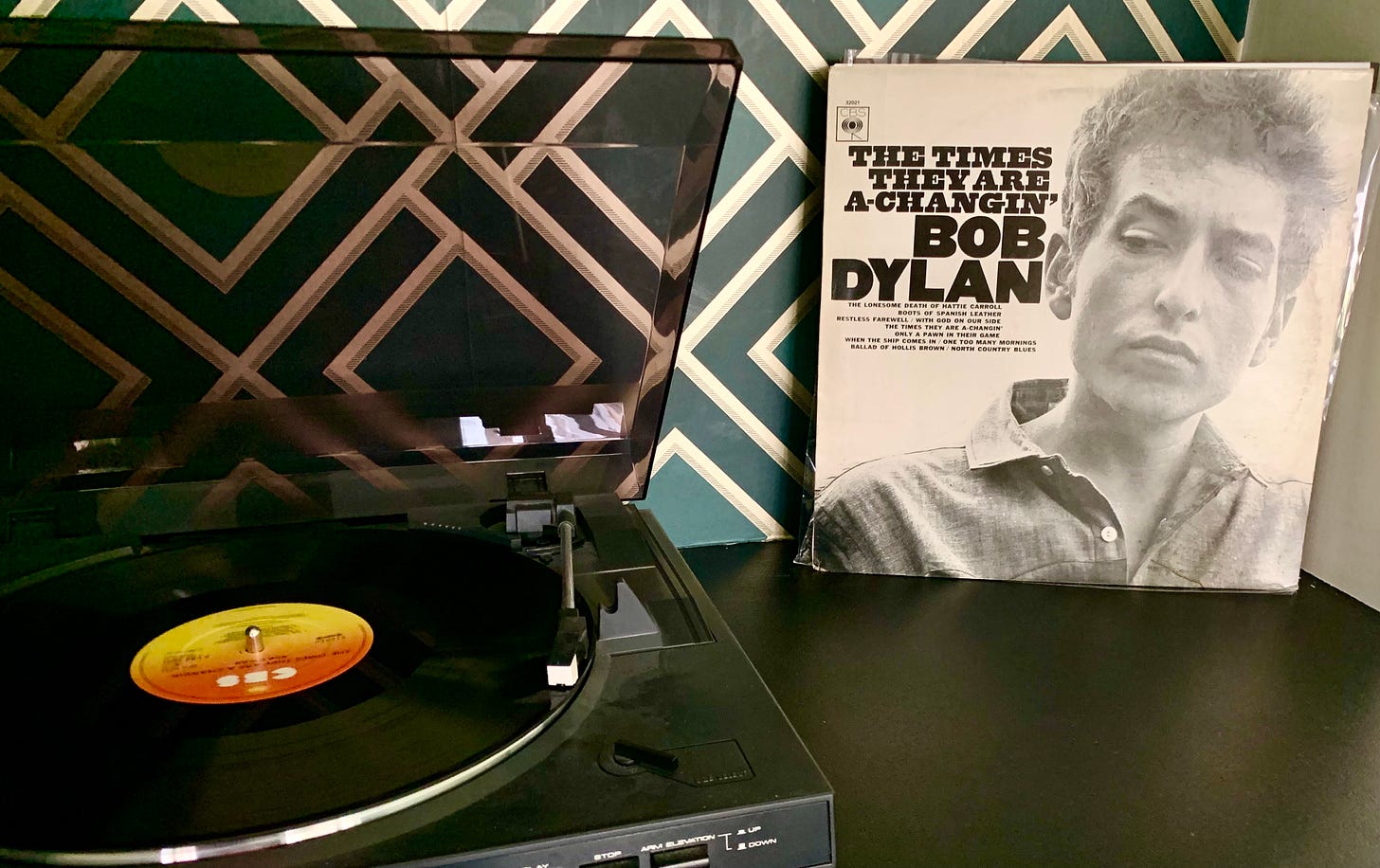Dylan Revisited: The Times They Are a-Changin' (1964)
Revisiting the peak and completion of Bob Dylan's protest phase on the 60th anniversary of the release of his third album.
This is a series by DylanRevisited based on former Twitter threads, now available here in an easier to read and longer lasting format.
“What is this shit?”
That infamous Self Portrait review opener by critic Greil Marcus had been posed directly to Bob Dylan six years earlier.
The cursing question was asked by a friend who had just read the lyrics to the title track of Dylan’s third album, The Times They Are a-Changin’.
A friend and fellow musician from Dylan’s Minnesota days, Tony Glover was in New York to make his own record.
Visiting Dylan in his apartment, he saw the Times lyrics sheet and was particularly unimpressed with the line, “come senators and congressmen, please heed the call”.
Glover asked, “What is this shit, man?” Bob replied, “It seems to be what the people like to hear.”
He was right. The Times They Are a-Changin’ would become one of Dylan’s most iconic songs.
The Times They Are a-Changin’ is a simple call for cooperation. Dylan calls on mothers, fathers, writers, critics, those senators and congressmen and society’s other elders to embrace the youth-led revolution.
Or at least get out of the way “if you can’t lend your hand”.
He first played the song live at Carnegie Hall in October 1963 and it became the essential opener to his set for the next couple of years. Dylan said at the time “my whole concert takes off from there.”
However, a month later, he opened his set with it the day after JFK’s assassination, unsure if its hopeful message was still appropriate. He later said he couldn’t understand why the crowd were clapping or why he even wrote the song.
This disillusionment with the potential for change was probably not new. Dylan had finished recording his third album on the last day of October. If the title and opening song gave people the hope they wanted, the rest of the record resolutely did not.
The Times They Are a-Changin’ – the song – might be the last time that Dylan ever gave people what they wanted.
The Times They Are a-Changin’ – the album – forces them to bear witness to a grim parade of poverty, injustice, murder and despair.
The late addition of Masters of War to The Freewheelin’ helped with Bob Dylan’s desire for more finger-pointing songs. His next record upped the accusatory ante even further.
If the Times were supposed to be a-changin’, here he shows how far they have to go.
The hope engendered by the opening title track is immediately dashed by The Ballad of Hollis Brown. It's a devastating account of a South Dakota farmer mired in poverty and beset by bad luck that concludes with mass murder.
Dylan had been playing Hollis Brown live since late 1962 and the song it’s based on, Pretty Polly, for even longer. On The Times They Are a-Changin’, the guitar strumming of his live performances is transformed into a taut-string picking style.
Tom Wilson – now on full-time production duties – wanted a harder guitar sound for the record and pushed Dylan’s voice up in the mix. This austere aesthetic is perfect for relating Hollis Brown’s tragic tale.
Like the album’s title track, North Country Blues opens with the words “Come gather round...”
But the song then follows Hollis Brown’s theme of rural poverty with its description of a northern mining town’s slow descent to destitution as the iron ore mines close.
Unusually for Dylan, North Country Blues is written from the perspective of a woman, while the setting and specific details suggest that he drew heavily from things he heard about during his Minnesota childhood.
“The room smelled heavy from drinking” is a superb line.
I loved With God On Our Side when I first heard it as a teenager. The heavy irony of ending each verse’s litany of historical violence by adding that they were done in God’s name appealed to my burgeoning atheism.
The audience at the October 1963 Carnegie Hall concert cheered at the end of each verse, demonstrating what an unorthodox message it was back then.
Today, With God on our Side sounds over-wrought and obvious, while its long dreary tune doesn't help.





